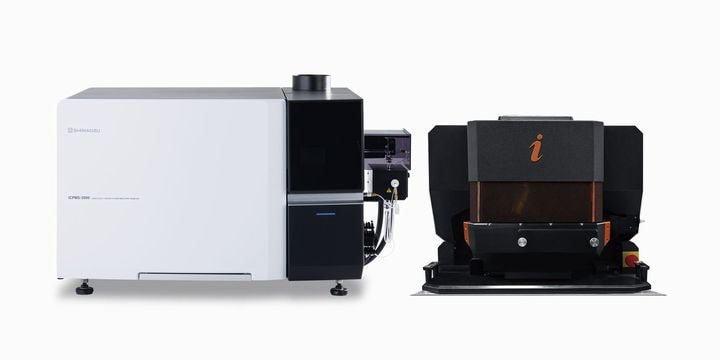
LA-ICP-MS
Inductively Coupled Plasma Mass Spectrometry
The new version of LabSolutions ICPMS software displays all necessary information in a single window, simplifying operation for new users. Experienced users can utilize advanced configurable settings for challenging applications, in-depth research and all analyses in between.
Various applications of mass spectrometry imaging (MS imaging) using laser ablation-inductively coupled plasma-mass spectroscopy (LA-ICP-MS) as a method for imaging metals in living organisms have been reported in recent years.
The ICPMS-2040/2050 can be combined with the Nexera inert series or the Prominence inert analysis system to form an LC-ICP-MS system.
AS-20 Autosampler
ASX-560 Autosampler
ASX-280 Autosampler
Online Internal Standard Kit
Dual Valve Unit
HFS-6 Hydrofluoric Acid Sample Injection System
Organic Solvent Injection System
Cyclone Chamber, Quartz
Standard Torch Kit
3rd Gas Introduction Unit
Water Bubbler
LC Connection Kit
LabSolutions ICPMS TRM
LC-ICP-MS Method Package
For analysis of organic solvents, a gas mixture of 70% argon and 30% oxygen is introduced into the torch to prevent precipitation of carbon (C) from organic solvents. This system includes a gas controller for mixed gases, a quadruple torch for organic solvents, and pump tubing for organic solvents (for ethanol/methanol/IPA).
This software is for controlling Shimadzu LC and ICPMS-2040/2050 Series systems and analyzing chromatography data.
Optimized analytical methods for the Shimadzu LC-ICP-MS system are provided as method files, so there is no need for users to develop their own methods. There are three types available: ‘Method Package for Mercury Speciation Analysis’, ‘Method Package for Arsenic Speciation Analysis Type 1’, and ‘Method Package for Arsenic Speciation Analysis Type 2’.
Please visit our US website.